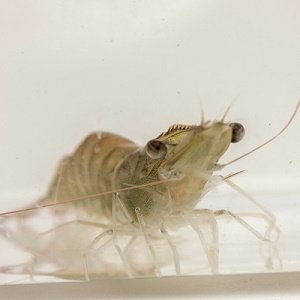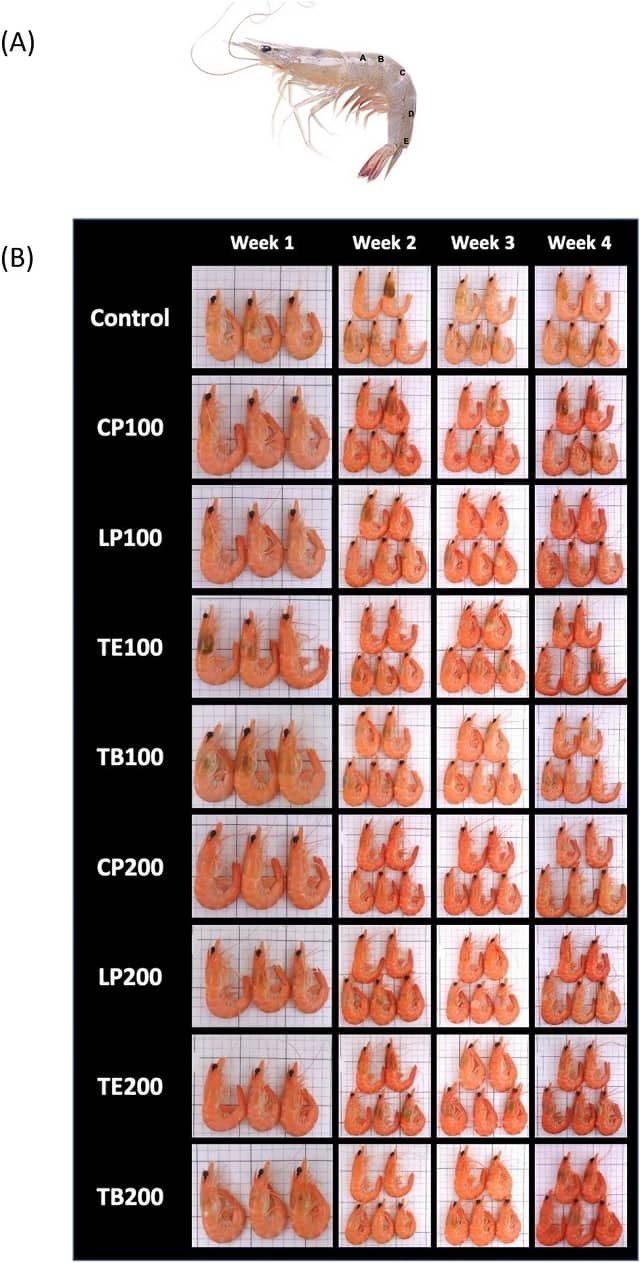The use of intensive aquaculture systems can affect the aquaculture environment due to the accumulation of organic waste and the metabolism of shrimp. The high concentration of debris, in turn, can cause oxidative stress in the shrimp.
Shrimp farmers can supplement feed additives to respond to oxidative stress in intensive shrimp farming systems. One such additive that can be used is selenoprotein.
A team of researchers from the Department of Aquaculture at IPB University and PT Aquacell Indo Pasifik evaluated the effects of selenoprotein supplementation on the digestibility, growth, and health of Pacific white shrimp (Litopenaeus vannamei).
Selenoprotein
Selenoprotein is a food additive that is composed of selenium (Se) and peptides.
Selenium is an essential trace element for growth and physiological functions in farmed fish as well as crustaceans and is an essential component of feed.
The main benefits of selenium are:
- Plays an important role in glutathione peroxidase enzyme to reduce and destroy peroxides that damage cells in the body and tissue synergy to form antioxidants that can boost the immune system.
- It also plays a role in the ability of the enzyme iodothyronine deiodinase to increase the production of the hormone thyroxine, which affects the rise in IGF (insulin-like growth factor). The increase in IGF leads to an increase in protein and carbohydrate metabolism.
Selenoprotein is one of the most potent forms of selenium that can be used as a selenium supplement for shrimp. It easily binds to the peptides (proteins) that make up the body.
Weight gain
“The weight gain of the shrimp fed with selenoprotein at a dose of 7.5 g/kg of food was 12.04% higher than the control group,” the researchers report.
They also report that the higher the dose of added selenoprotein, the greater the shrimp weight gain, as long as the selenium dose is kept within the shrimp’s tolerance limit.
Stay Always Informed
Join our communities to instantly receive the most important news, reports, and analysis from the aquaculture industry.
According to the study, the selenoprotein-supplemented feed contains more moisture than the control feed. Consequently, it is necessary to calculate the dry weight of the food to equalize its moisture content.
Feed conversion
“Selenoprotein supplementation in shrimp feed positively affected FCR, PER, and PR parameters,” they reported.
According to the study results, the economic conversion value, the use of selenoprotein increases feed efficiency, thus reducing the cost required to raise shrimp.
Antioxidant activity
The antioxidant activity is positively correlated with the immune response. White shrimp lack an immune system, so they need the administration of immunostimulants so that their immune system is always prepared to fight pathogens.
The values of cellular (THC and AF) and humoral (PO, proPO, RB, AL, and PE) immune responses of shrimp supplemented with selenoprotein were higher than those of controls, indicating better immunity against V. parahaemolyticus.
“It made the survival of the selenoprotein-treated shrimp superior to that of the control group before and after the challenge test,” the researchers report.
Conclusion
“The use of selenoprotein at a dose of 7.5 g/kg of food (2.27 mg of Selenium per kilogram of food) was considered the most effective for increasing proactivity and preventing disease attacks in intensive shrimp farming,” conclude the researchers. researchers.
The study was funded by PT. Aquacell Indo Pasifik.
Reference (free access)
Rafi Kemal, Ichsan Achmad Fauzi, Sri Nuryati, Wira Wisnu Wardani, Muhammad Agus Suprayudi, “Evaluation of Selenoprotein Supplementation on Digestibility, Growth, and Health Performance of Pacific White Shrimp Litopenaeus vannamei“, Aquaculture Nutrition, vol. 2023, Article ID 2008517, 12 pages, 2023. https://doi.org/10.1155/2023/2008517
Editor at the digital magazine AquaHoy. He holds a degree in Aquaculture Biology from the National University of Santa (UNS) and a Master’s degree in Science and Innovation Management from the Polytechnic University of Valencia, with postgraduate diplomas in Business Innovation and Innovation Management. He possesses extensive experience in the aquaculture and fisheries sector, having led the Fisheries Innovation Unit of the National Program for Innovation in Fisheries and Aquaculture (PNIPA). He has served as a senior consultant in technology watch, an innovation project formulator and advisor, and a lecturer at UNS. He is a member of the Peruvian College of Biologists and was recognized by the World Aquaculture Society (WAS) in 2016 for his contribution to aquaculture.







